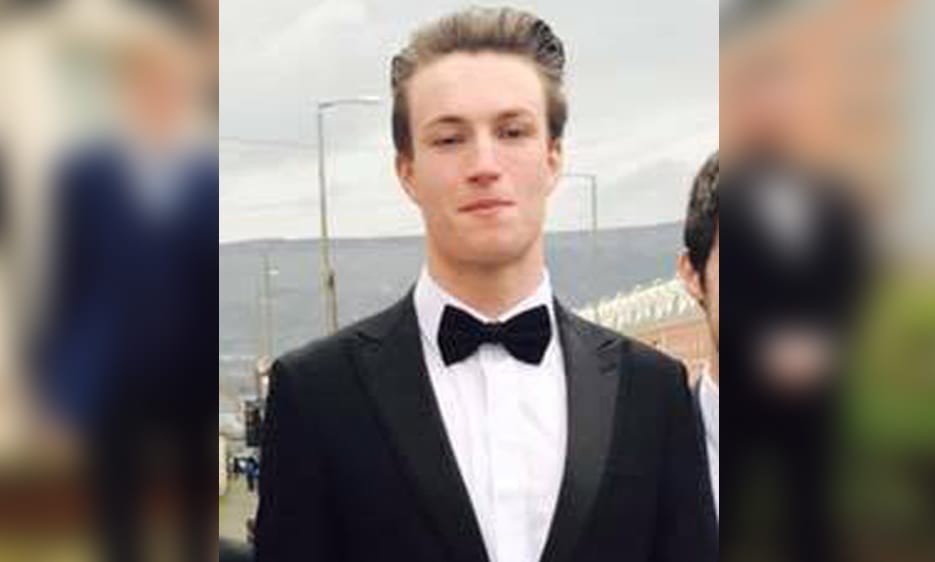
Three Armagh lifeguards accused of breaching their duty of care to an “accomplished” swimmer who blacked out and tragically drowned during underwater training exercises told investigators they were not concerned about him, a jury heard on Monday.
The Newry Crown Court jury of three men and eight women (11 – one was discharged last week) also heard that all three defendants were aware of Christopher Rogers and of what the 20-year-old was doing.
Having swam two and a half lengths of the pool underwater, Mr Rogers broke the surface and then – having tragically suffered a hypoxic blackout – sank to the bottom of the pool in Orchard Leisure Centre in Armagh where he remained for five minutes and 14 seconds before he was pulled out.
On trial each facing a single count that being employee, they were in breach their duty to others on 7 April 2017 in that they “failed to take reasonable care for the health and safety of other persons who may be affected by your acts or omissions at work” are:
Cathal Forrest-McVeigh (35), from Dunamony Road in Dungannon;
William Holden (26), from Unshinagh Lane in Portadown and
James Monaghan (26), from Folly Lane in Armagh.
The jury have heard that during the time Mr Rogers was submerged, the lifeguards were aware of him and had been observing him, that McVeigh and Monaghan were engaged in conversation for two minutes and twenty seconds and that before they attempted a rescue, McVeigh had banged on the steps with a pole and had asked another swimmer to check on him, that swimmer believing that he got a “thumbs up” sign from the 20-year-old.
It is the Crown case that each of them breached their duty of care by waiting too long to initiate a rescue, that the prolonged changeover of pool duties distracted them and that they “missed the signs” that Mr Rogers was in danger.
The jury have also heard, however, that during their training and induction, the lifeguards received no guidance about hypoxic blackouts or the signs to look for, about prolonged breath holding or the dangers of extensive underwater swimming.
On Monday the jury heard transcripts of interviews the police and the Health and Safety Executive (HSENI) conducted with each of the defendants two years after the tragic incident.
McVeigh’s interviews were the first to be read by Kevin Campbell, a senior investigator with HSENI, and the jury heard that on legal advice, the 35-year-old refused to answer police questions, referring them instead to a detailed statement he made a few weeks after Mr Rogers died.
That statement was read into the record by the interviewing officers and the jury heard how McVeigh outlined that he was aware of Mr Rogers holding his breath and swimming lengths under water.
The lifeguard said that due to glare on the water surface, he moved to get a better view and then could see Mr Rogers on the bottom of the pool who “seemed to be conscious and he was moving – sitting up and lying down.”
He said that a member of the public checked Mr Rogers and “after this myself and other staff still had no concerns – we believed him to be holding his breath as previous.”
In his statement McVeigh recounted that after he banged on the metal steps with a reach pole, “a member of the public grabbed his arm and came up and I noticed there was no reaction from Christopher.”
“I would like to clarify that when I stated that Christopher Rogers was under the water we did not believe that he was in any danger but that we were concerned that he had been holding his breath for a pretty long time,” said the statement.
Holden had been on duty in the high chair and he told police and HSENI that when his colleague came on duty to relieve him, even though he knew Mr Rogers’ usual swimming and training habits “I wanted him to come up from the bottom.”
“At that point there was no real concern – I just wanted him up from the bottom of the pool because obviously, there was a switch over,” Holden said, adding that “I didn’t really think there was anything wrong but when he was pulled up out of the water I ran over and hit the alarm.”
He told investigators that although he could not remember whether his training had addressed or included hypoxic training, “it was definitely addressed after the incident” with advice posters put up in leisure centres and “a rule that you are not allowed to do more than 20 meters underwater.”
Mr Rogers “wasn’t a stranger to the pool” Holden said during his recorded interviews and he told the investigators “if it had been somebody else, we would have taken action straight away…definitely.”
Monaghan gave a similar account where he told investigators “it wasn’t like a random person in the pool – we knew of him and we knew that he done the type of training that he did…we were just keeping a watch.”
He had been at poolside and around the time that Mr Rogers started his underwater lengths, McVeigh had come on duty to relieve him and Monaghan told police and the HSENI part of their conversation was about the submerged 20-year-old but “there was no cause for concern whatsoever.”
The lifeguard said the conversation was along the lines of “Chris is in swimming – just keep a watch” after which he went to the changing area and when he came back, Mr Rogers was still submerged.
The jury heard that Monaghan had gone back to the changing area when the alarm was raised and like his colleagues, he also agreed there was “nothing in the training about how long people should stay underwater…or about hypoxic training.”
“At no point did I think that it was not OK,” Monaghan said in his interviews, explaining that “if it was any other swimmer on the bottom of the pool for say like 30 seconds, we would get in and get him out.”
“If it was someone diving in the shallow end and I watched them do it and didn’t say anything and they did it again and hurt their spine, then I’m in breach of my duty of care but I didn’t know to tell him,” Monaghan said.
The trial continues.



